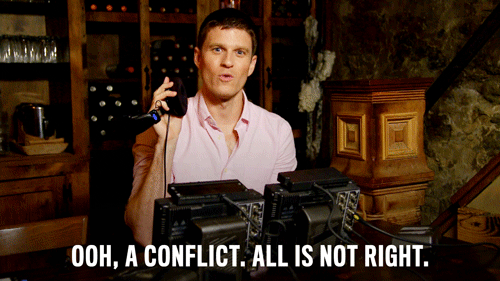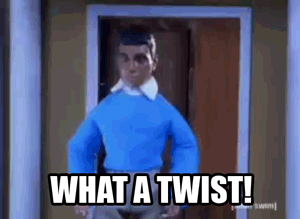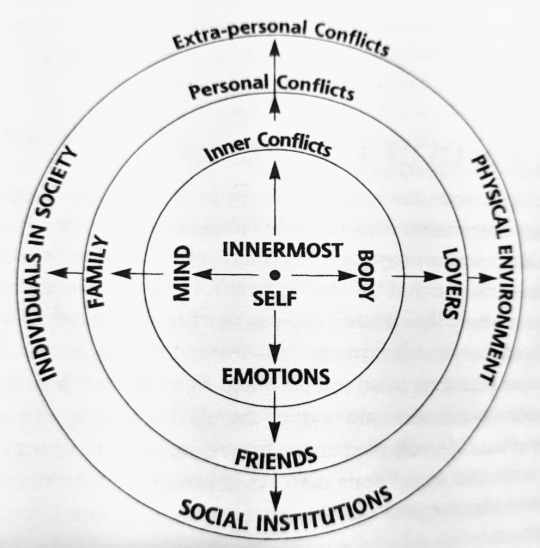#its like romeo and juliet but instead of opposing family conflicts its the entire world being the biggest danger there is
Explore tagged Tumblr posts
Text
The Flowerheart!

(purposely didn't colour in Feli's tie and Hal's glove, it's like they're subtly trying to match :3 while also seemingly missing a piece of one another). Honestly though, in regards to Hal's sexuality, he's like that one tweet: "I'm probably nonbinary but I have a job so idrc bout that rn." He's definitely queer, but he's too busy with getting in danger his job to even bother with that so he just gets the queer label!
Neither of them confessing orz... They love each other so much yet neither of them are confessing... Hal being overprotective of Feli but in a way where it isn't even all that known by anyone but Feli and her the people really close to them. Hal doing his job is half-wanting to keep their city safe and half-wanting to keep Feli from any harm. He aint letting anyone hurt her that's for sure.
Relationship chart is made by @bengallemon !
#ariart#ariaoc#taking my weekly or so dosage of drawing my own ocs to get used to drawing em so i can draw em easily without the Demons#aka the nagging voice at the back of my head shouting at the fact that they arent as perfect as i see em in my head. only with my ocs smh#hal being a gift giver in the sense of ''i dont really need these so you can have them'' even tho he really purposely got those for feli#and feli doing acts of service in the sense of ''its part of my job to do this so just stay put'' even tho she wont do that for anyone else#ngl doing this made me sad cuz am made even more aware just how badly i set these two up. like they love each other sooo much#but cant even show it freely at all! they always gotta give out excuses to make it seem like it isnt purposely directed at the other#and not even in a tsundere way! cuz if it was up to them theyd be so publicly open bout their love for one another but its just#that the very world theyre living in is just so harsh that they both know it. hal cant show any weakness and he doesnt wanna#endanger feli and feli knows that too! she doesnt wanna endanger hal any more than hes alrdy constantly endangering himself#so the both of em just... puts the other within arms reach. even farther than that too! AND ITS SO SAD!#its like romeo and juliet but instead of opposing family conflicts its the entire world being the biggest danger there is#so the most selfish act feli and hal can do is keep their love for one another trapped within their own hearts#with only the silence between them their only means of communicating their ''i love yous'' cuz the world is too cruel
6 notes
·
View notes
Note
My best friend has never seen Star Wars but went to TROS with friends. She doesn’t watch/read Sci-Fi or fantasy. She teaches literature, & somehow her take on the movie was that it was good if somewhat simplistic. She said she saw the clear vision of good vs evil, the Jesus allusion, the Romeo/Juliet allusion, & hope/love save the day. I love your meta & don’t have the same skill in explaining why the story doesn’t work. Could you share some points that a non-Star Wars person would understand?
I haven’t and will never actually watch this film in its entirety, so I’m not really the best person to give you a detailed breakdown addressing it on its own merits instead of why the concluding beats are inexcusable in context.
But I would hope someone who teaches literature would know better than to think there’s anything like a coherent vision of good and evil here? Would know what Romeo and Juliet is actually about and that it has nothing whatsoever in common with this nonsense?
This isn’t Romeo and Juliet. R&J is about the idealistic lovers as causalities of a pointless conflict based on pride and stubborn clinging on to hatred the source of which isn’t even remembered. The opposing sides aren’t functionally or morally different, it’s just prejudice. The avoidable and unnecessary nature of the lover’s deaths is the thematic centre of the narrative.
In Star Wars the war is a metaphor for the conflict going on in the human spirit between selfishness and love (aka compassion, aka selflessness). The Empire/First Order/Dark Side are straight up evil and there is no compromise possible with them. People on the dark side can be saved, people in the First Order can be saved, but they are on the wrong side and the good guys are right to fight against that side. The problem in the galaxy is selfish choices and selfish choices create evil, but love is always stronger than violence and love is productive- choosing love is choosing life. There is no punishment and sacrifice is rewarded. Love doesn’t kill you, love sets you free and allows you to live.
R&J is also a tragedy in the most textbook literal sense, where Star Wars is supposed to be an idealistic fairy tale about hope. Maybe people should keep this in mind when comparing the endings. Edit: And I thought it went without saying, but I guess I need to mention: Romeo and Juliet both died. The point was the waste of their lives and their love. Ben dying for Rey to live just has nothing NOTHING to do with that. Sad lovers =/= R&J. Read more than four books ever.
Another anon summed up some points on agency and good/evil:
TRoS is not even remotely good at its own merits, like: judging from the clunky dialogue this is *ostensibly* about Evil being seemingly inevitable and Good being a free active choice, but the story undermines all of that! Finn’s deflection as a result of Force sensitivity, “And I am all the Jedi” and “Rey, Rey Skywalker” present Good in this story as being just another determinist system. The only act of heroic choice is Ben’s, and he still inevitably dies unmourned and unacknowledged
And what they have done to Rey’s story has completely stripped her of moral agency of any kind. She has power because of her bloodline, she has some kind of ill-defined ‘darkness’ because of her bloodline, nothing organic to her as an individual remains. She has no conflict or moral choice, she’s just Innately Good. This determinism is violently opposed to the message of sw that everyone always has a choice, that evil is something you choose over time, that good is a decision you can ALWAYS make.
Ben’s redemption is completely undermined by making his motivations suddenly totally unclear and predicating his turn on Rey telling him she wanted to take ‘Ben’s hand’. Implying a) that he’s only Ben when he’s good instead of calling him on his bullshit persona and forcing him to accept he’s always Ben b) that her love is conditional c) that he turns not because he has realised he’s wrong about fatalism and the ends justifying the means but because he’s realised Rey will never be with him on the dark side and d) that Rey has never faced any temptations or even considered being selfish by buying into his damaged world view just to be with him.
This is morality chain writing and robs both characters of any resonance. Turning because he wants to be with Rey is not redemption. Rey giving him an ultimatum is not grace or love. There is no SW heroism here.
Rey’s whole battle with Palpatine and death is stupid and makes no sense. She wins with violence and makes no sacrifices. Ben’s sacrifice is arbitrary and not justifiable and doesn’t conclude his arc. It’s a continuation of his enslavement, an abnegation of his identity and legacy when he needed to reclaim it.
My tags for the foundational principles of sw and how they work and also the character tags with posts explaining why this shit don’t make sense for them:
space crime and punishment
Rey
Ben Solo
redemption
the legacy
don’t call the exorcist we got a happy murder pact
Like, everything your friend said is wrong if they think any part of this holds together, but I’ve written dozens of disparate rants on why and I’m not really prepared to summarise atm. The Rey tag is your best bet for some good overviews of TRoS bullshit, and there are some compilations with links further down. Ben tag has more about fatalism (also Luke’s arc in TLJ, also Vader’s only textual set up for redemption in the OT).
Ben dying for her is totally unacceptable predestination rubbish in a moral drama about the power of an individual’s choice. There’s no hope unless he lives because he is the happy ending of the previous trilogies, there’s no hope or light possible in the GFFA unless he lives because if the family’s existence was one of tragedy, failure, and suffering then the Force made a mistake in creating the Skywalkers. Or the Force is not benevolent. It breaks the entire story and all of its mythology.
And they gave Rey everyone else’s arcs (for no reason) after stripping her of hers (for no reason), except she resolves these arcs by being Born Good and never struggling where the characters to whom they organically belonged made meaningful choices. She is handed everything where Ben doesn’t deserve to live because he couldn’t raise himself and couldn’t cope with being abused his entire life without making some mistakes and having some ugly trauma. He redeems himself (BY himself) and it’s still not good enough. Rey makes no heroic unselfish choice, he does and he’s rewarded with death. This makes love and good transactional, it means he needs to pay for Anakin’s sins. He’s a victim and barely comes-of-age, but he’s dead while his family doesn’t give a shit. It’s disgusting.
#trosspoilers#salt#a mess but I'm too tired and angry to actually give you a good overviews I'm sorry anon#I'm not chill#PEOPLE DON'T FUCK WITH ATONEMENT DO THEY?#I'm not going to start about Jesus on here#just know that your dualism is what's wrong with society#the Force is not a demiurge#the Force is pure Being#we're getting too deep abort abort#if you've studied literature you should know this is not how you scapegoat in an idealistic story#WRONG ABOUT STAR WARS#wrong about theology#just wrong
188 notes
·
View notes
Text
Notes on Robert McKee’s “Story” 18: The Three Levels of Conflict

We all know that any and every story must have a conflict. A guy wants to get The Girl, but their families oppose their union, for example.
But do you know all of the types of conflict? I didn’t until I read this section. Also, I just gave the major conflict of Romeo and Juliet, but there is more than just the major conflict. A good story has a minor conflict at every turn, as McKee explains in this next section.
The Similarities and Differences of Real Life and Story
When we decide to start writing, the first thing we ask ourselves is, “What will my character do?”
“All characters, in pursuit of any desire, at any moment in story, will always take the minimum, conservative action from his point of view. All human beings always do. Humanity is fundamentally conservative, as indeed is all of nature. No organism ever expends more energy than necessary, risks anything it doesn’t have to, or takes any action unless it must. Why should it?”
I read this section was thinking to myself, “Well Mr. McKee has clearly never worked for a corporation before, because my job just loves making tasks as convoluted and silly as possible.”
But he foresaw this doubt within us and continues:
“In life we often see people, even animals, acting with extreme behavior that seems unnecessary, if not stupid. But this is our objective view of the situation. Subjectively, from within the experience of the creature, this apparently intemperate action was minimal, conservative, and necessary. What’s thought ‘conservative,’ after all, is always relative to point of view.”
Do you remember that scene in the first Avengers film where Captain America and Tony Stark first meet, and Steve asks him, “Big man in a suit of armor. Take that off, what are you?” And Tony answers, “Genius, billionaire, playboy, philanthropist?”
Well, right after that Steve says, “You’re not the guy the make the sacrifice play, to down on a wire and let the other guy crawl over you.”
To which Tony replies, “I think I would just cut the wire.”
Here we can see how different characters come to choose different “conservative” actions.
Of course, this is done in real life all the time as well. You need to call your dentist and make an appointment, but you’ve forgotten their phone number. So you call your mom and ask her to make the appointment for you instead. Perhaps your friend if in the same situation would just Google the number of the office, call and make the appointment themselves. Maybe your grandmother, who doesn’t trust those cell phones, drives to the dentist office and makes an appointment in person.
About 99% of the time, we make the right decision and take the most “conservative” action. Your mom gives a sigh but makes the appointment and texts the date and time to you. Your friend calls the dentist and gets their appointment booked. Your grandmother went in, and as luck would have it, there was an opening and she was seen by the dentist right then and there.
Minimal effort expended, and our desires are fulfilled.
McKee says:
“This is the great mass of experience, hour by hour, in life. BUT NEVER, EVER IN A STORY.
In story, we concentrate on that moment, and only that moment, in which a character takes an action expecting a useful reaction from his world, but instead the effect of his action is to provoke forces of antagonism. The world of the character reacts differently than expected, more powerfully than expected, or both.”
You call your mother and say, “Hey, sorry to bug you, but could you make me an appointment with the dentist please?” and she shouts, “How did you get this number? Don’t you ever call me again!” and hangs the phone up. Now there’s something interesting.

The World of a Character
This entire chapter of McKee’s book is trying to identify the substance of a story from the perspective of a writer who has placed himself at the very center of the character he is creating.
“The ‘center’ of a human being, that irreducible particularity of the innermost self, is the awareness you carry with you twenty-four hours a day that watches you do everything you do, that chides you when you get things wrong, or compliments you on those rare occasions when you get things right. It’s that deep observer that comes to you when you’re going through the most agonizing experience of your life, collapsed on the floor, crying your heart out... that little voice that says, ‘Your mascara is running.’ This inner eye is you: your identity, your ego, the conscious focus of your being. Everything outside this subjective core is the objective world of a character.”
That’s a rather pessimistic self haha. I hope not everybody thinks that negatively about themselves and that your inner voice is a bit more loving to you, because you deserve it. ♡
The Three Levels of Conflict
Bam. Here they are.

McKee goes on to explain that a character’s world can be imagined as a series of concentric circles surrounding a core of raw identity or awareness, circles that mark the levels of conflict in a character’s life. The inner circle or level is his own self and conflicts arising from the elements of his nature: mind, body, emotion.
For example, when a character takes an action, perhaps his thoughts aren’t as quick/correct as he wishes. Maybe his body doesn’t move quick enough and he fails to dodge the attack. The closest level of antagonism in the world of a character is his own being: feeling and emotions, mind and body, all or any of which may or may not react from one moment to the next in the way he expects.
The second circle is for personal relationships, be they with friends, lovers, or family.
The third circle marks the level of extra-personal conflict -- all the sources of antagonism outside the personal: conflict with social institutions and the character, like government/citizen, boss/worker, man/nature, etc.
When your character attempts to seek their desire, a conflict of some form will rise up and cause an unexpected outcome.
Until I read this section and next one (to be covered in my next post), I knew that any story needed a main conflict, but I never gave much thought to all the scenes leading up to the big conflict and its resolution. But now I can see that each action my character takes towards the main conflict needs to be met with smaller conflicts.
Because, in the words of Coraline in Neil Gaiman’s book Coraline, “What kind of fun would it be if I just got everything I ever wanted? Just like that, and it didn’t mean anything. What then?”
Source: McKee, Robert. Story: Substance, Structure, Style, and the Principles of Screenwriting. York: Methuen, 1998. Print
#creative writing#writing inspiration#writing inspo#writeblr#creative writing methodology#creative writing theory#writer#author#write#writing#robert mckee#writing novels#writing fiction#writing fantasy#plotting#story plotting#novel plotting#conflict#writing prompts for friends notes on story
2 notes
·
View notes